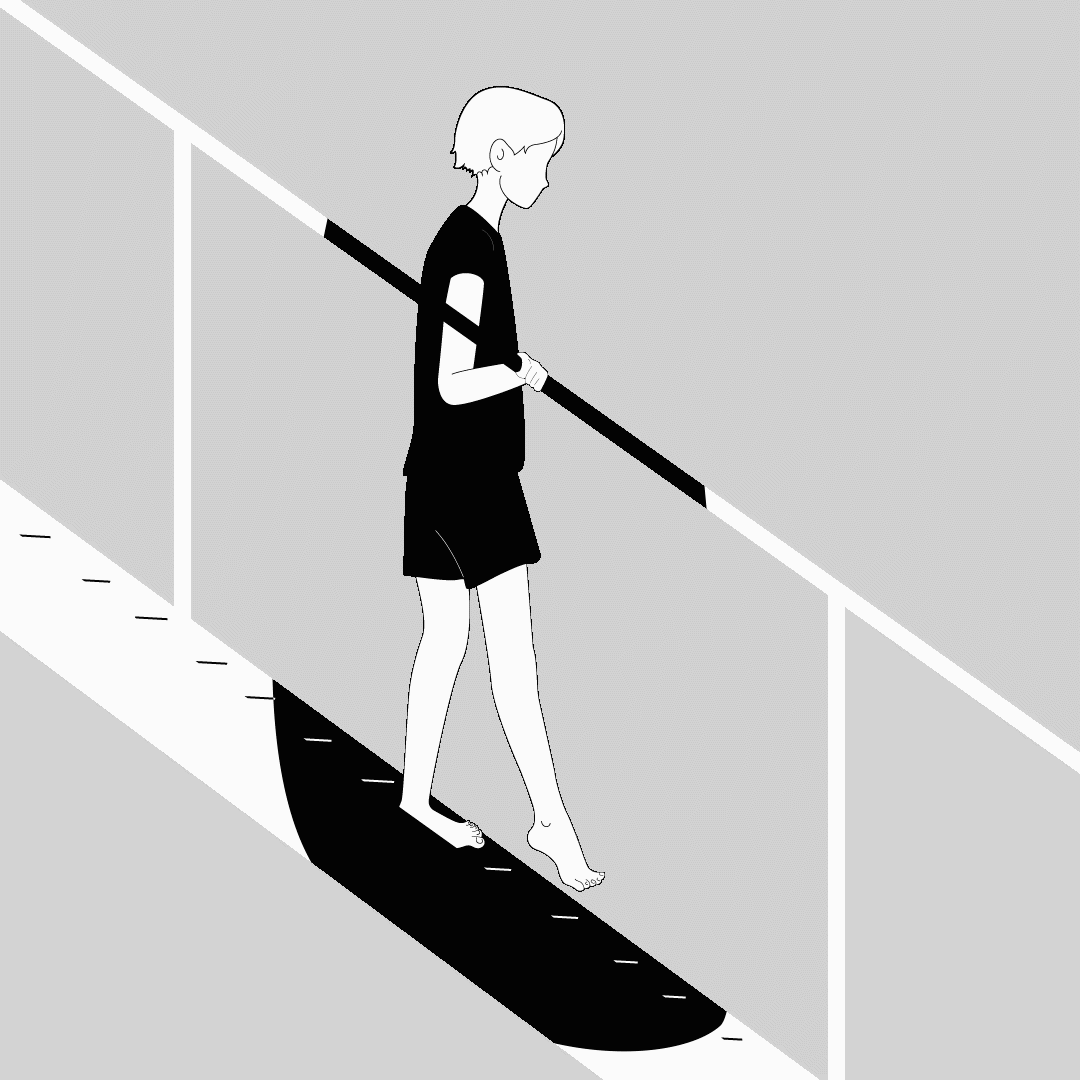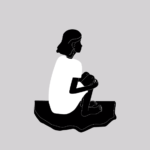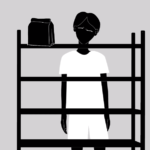THE ATTITUDE OF OUR SOCIETY TOWARDS THE LGBTIQ + COMMUNITY
Being gay in a country like Kosovo means waking up different every day, and to fight to live like others. The life of a gay person in Kosovo is not easy, due to stigmatization of the LGBTIQ + community in general.
Ilustrimi: Argjira Kukaj

The protection of LGBTIQ+ people’s rights in Kosovo, regardless of latest developments that our country might have had, it continues to be a big battle. The Constitution of the Republic of Kosovo guarantees the protection of human rights, equality and non-discrimination, specified in Article 24 (1), which states that all are equal in the eyes of Law and enjoy the right to equal legal protection, without discrimination moreover, the prohibition of discrimination on the basis of gender and sexual orientation, as well as other personal statuses. However, this does not apply in practice. People from LGBTIQ + community are often forced to live in hiding from the rest of society, as the state does not provide them with the necessary support. The citizens of Kosovo continue to reject the LGBTIQ + community (lesbian, gay, bisexual, transgender, intersex and queer) as a reality. According to research by the GBC organization entitled, “Perceptions of the position of the LGBTIQ + community in Kosovo” the LGBTIQ + community continues to be threatened and endangered by Kosovo society. In this research, a high degree of harsh negative attitudes towards members of this community has been identified. Nearly half of respondents think that homosexuality is a disease (47.6%) and they consider it dangerous for society (61.6%). The research also draws some conclusions which provide an overview of the situation of the LGBTIQ + community in Kosovo.
REFUSAL OF LIBERAL CONCEPT
As a society, Kosovo rejects the liberal concept of human rights as a value, especially the rights of the LGBTIQ + community. LGBTIQ + rights are seen as a value either imported or imposed from abroad, or are not considered to be a fundamental human right. Consequently, the majority of the LGBTIQ + community is forced to live a secret or a double life with constant fear of violence and discrimination.
Being gay in a country like Kosovo means waking up different every day, to fight and to live like others. The life of a gay person in Kosovo is not easy, due to stigmatization of the LGBTIQ + community in general. A homosexual person in Kosovo still does not have the space to gain the courage to publicly acknowledge his sexual orientation.
“We have a lot of pressure from groups of people. Not that they know what it’s all about, they’re linking the LGBTIQ + community to something that’s very bad, something immoral, and it’s been a phenomenon lately, and someone brought it from abroad. Homosexuals also suffer from their family, there are cases when they are excluded from home, to live in Kosovo as a homosexual is very difficult. The moment society realizes your sexual orientation, they leave you, and also the family tends to drive you away from home, and there is nothing worse than that. Most families in Kosovo I think are still traditional and do not accept people as such, because everything that is ‘masculine’ is valued more, and it is difficult to accept people with their own sexual orientation and do not respect the rights of everyone “, says a member of the LGBTIQ + community who wished to remain anonymous.
This topic continues to be a major taboo in Kosovar society, whether in the family, school, media or even at other levels. Members of this community face many injustices, from the family, society, as well as institutionally. But it is not known how long this situation will continue, the members of this community, although they have a lot of support from international bodies, various European foundations also from local institutions, there is still a lot to work on in this aspect.
LEGAL PROTECTION
Kosovo’s legal framework provides advanced guarantees for human rights, harmonized with international standards. Theoretically, the constitution allows many international human rights agreements and instruments to be implemented in Kosovo’s legal system and to enable the interpretation of fundamental human rights and freedoms in accordance with the decisions of the European Court of Human Rights. Many international actors, including the United States, have been involved in advising on the substantive structure of the constitution, and have thus advocated for its compliance with international and European human rights standards. American professor Louis Aucoin was one of the key figures in the Kosovo Constitutional Advisory Commission. In a 2008 interview, he was asked how sexual orientation is guaranteed in the Constitution and how it became possible to include such a difficult issue, he replied: “During the commission process, we were divided into subgroups debating some of the most important topics in the constitution, and one of them was human rights. I had an interesting conversation with a woman who was the president of this subgroup on human rights: she explained that the inclusion of sexual orientation in the article that provides anti-discrimination is necessary, but this creates controversy in that subgroup. Some people even went outside. But when it came to reviewing this text, I mentioned the fact that the South African constitution also includes protection against discrimination on the issue of sexual orientation, and then there were no more objections,” Aaucoin told the Refugee Network.
This is perhaps one of the reasons why Kosovo is one of the ten member states that has banned discrimination based on sexual orientation in its constitution, even though Kosovar society still remains traditional and conservative. Contrary to the principle of equality, as defined by the Constitution, the LGBTIQ + community is prohibited from having a lawful marriage. This is because the current Family Law restricts the act of engagement and marriage only to people of the opposite sex. Taking into account all this, it should be noted that, in addition to some shortcomings, some of which have been highlighted, namely, the legal framework of Kosovo that guarantees advanced protection of LGBTIQ + rights. This protection, however, has not necessarily been put into practice. Therefore, the priority to move forward is to focus on the implementation, practice of LGBTIQ + legal guarantees. Much remains to be done in the fight to advance the rights of the LGBTIQ + community, the harsh and brutal norms of society and the weak capacity of the state to enforce the rule of law.
About the author: Endrit Mazreku, 20 years old, from Malisheva, is a student of political science at the University of Prishtina.
This grant is supported by the ‘Civil Society programme for Albania and Kosovo’, financed by the Norwegian Ministry of Foreign Affairs and managed by Kosovar Civil Society Foundation (KCSF) in partnership with Partners Albania for Change and Development (PA). The content and recommendations do not represent the official position of the Norwegian Ministry of Foreign Affairs and Kosovar Civil Society Foundation (KCSF).


